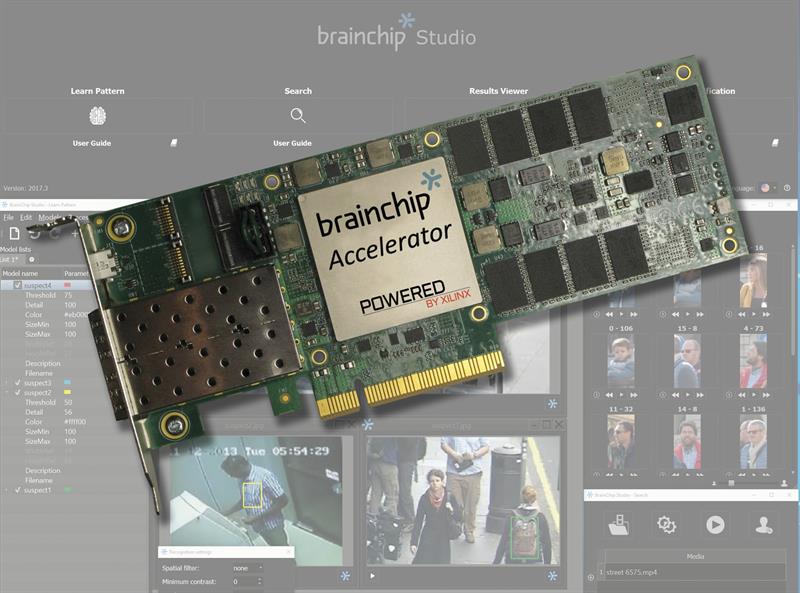The Accelerator is an 8-lane, PCI-Express add-in card that increases the speed and accuracy of the object recognition function of BrainChi'sp Studio software by up to six times, while increasing the simultaneous video channels of a system to 16 per card. According to the company, the card is very low-power and is easy to install within existing video surveillance systems without the need to upgrade power systems or thermal management.
BrainChip Studio is used to help law enforcement and intelligence organisations identify objects rapidly by using large amounts of archived or live streaming video. By processing multiple video streams simultaneously, the BrainChip Accelerator add-in card enables these organisations to search increasing amounts of video much faster, with a higher probability of object recognition and lower total cost of ownership.
The system is able to learn from a single low-resolution image, which can be as small as 20 x 20 pixels, and is able to work in low-light, low-resolution, noisy environments.
It is the first commercial implementation of a hardware-accelerated spiking neural network system, and BrainChip Accelerator is being seen as a significant milestone in the development of neuromorphic computing, a branch of artificial intelligence that simulates neuron functions.
The processing is done by six BrainChip Accelerator cores in a Xilinx Kintex Ultrascale field-programmable gate array (FPGA). Each core performs fast, user-defined image scaling, spike generation, and spiking neural network comparison to recognise objects. Scaling images up and down increases the probability of finding objects, and due to the low-power characteristics of spiking neural networks, each core consumes approximately one watt while processing up to 100 frames per second. In comparison to GPU-accelerated deep learning classification neural networks like GoogleNet and AlexNet, this is a 7x improvement of frames/second/watt.

“There is an estimated four exabytes of video data stored in video surveillance systems,” said Robert Beachler, BrainChip’s Senior Vice President of marketing and business development. “In surveillance, speed and accuracy of analysis are critical concerns for law enforcement and security agencies. The ability of BrainChip Accelerator to process video frames six times faster, while improving the accuracy of object recognition, is a significant force multiplier. It is also a further demonstration of the valuable role that artificial intelligence can now play in these applications.”
Compatible with Windows or Linux computing platforms BrainChip Accelerator is currently available to select law enforcement and intelligence agencies as an integrated server appliance.













